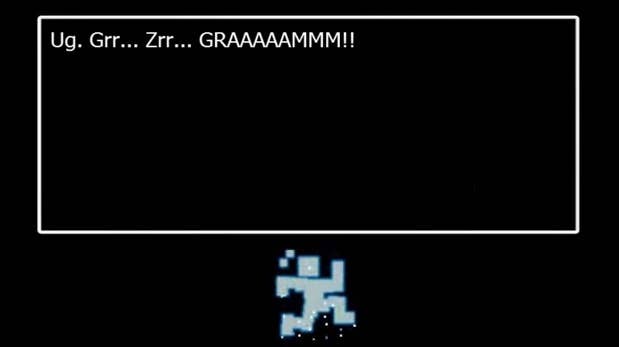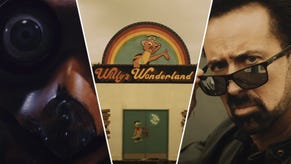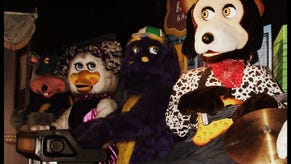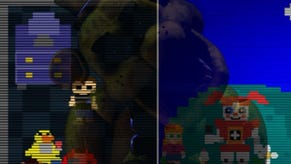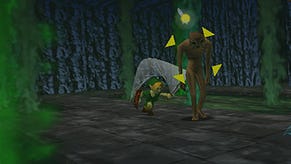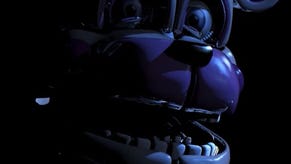Is the Five Nights at Freddy's Series Really Done?
It's a series about zombified animatronics. Draw your own conclusions.
This article first appeared on USgamer, a partner publication of VG247. Some content, such as this article, has been migrated to VG247 for posterity after USgamer's closure - but it has not been edited or further vetted by the VG247 team.
Five Nights at Freddy's 6 (FNAF 6) is here. It's disguised as a harmless pizza-throwing arcade game, but it doesn't wait long before it unveils its true colors (like, for example, the mysterious pink-and-grey of the grime that builds up in the corner of pizzerias and other restaurants).
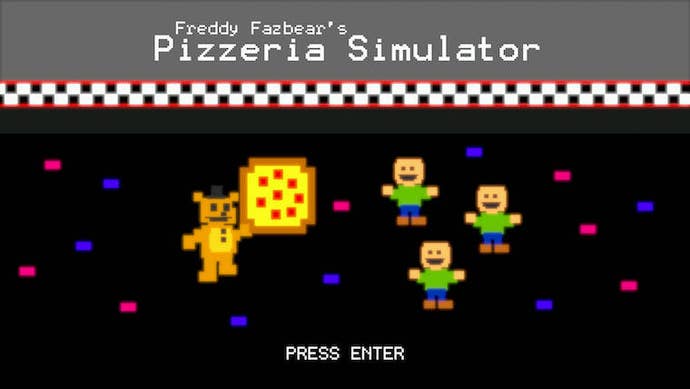
FNAF 6 is free to download on Steam, and there are no microtransactions. You literally have nothing to lose by giving it a try (we even have a guide to help you!), though the game is clearly engineered for fans of the series' twisted lore (which I untangle over here). FNAF 6 appears to un-pretzel quite a few story points and close the book on some unanswered questions. In fact, finding the game's best ending nets you a definitive "The End" screen along with a "Thank You" message from series creator Scott Cawthon. Most fans are convinced this is the last FNAF game; that definitely seems to be the opinion of the FNAF subreddit.
I'm a little more skeptical, though. While we've assuredly come to the end of a three-game story arc, there are still plenty of loose ends Scott can tie up with another game. Or three.
(Series spoilers follow from here on out!)
In my FNAF lore guide, I explain the games link together to tell an overarching story about the Aftons, a troubled family whose patriarch, William, is a serial child killer. FNAF 6 continues to explore that angle, and builds on the suggestion that William was especially abusive towards his youngest son.
William seems to get his comeuppance at the end of FNAF 6. He appears to burn alongside the animatronics hosting the souls of the children he murdered, and whereas the children will be allowed to move on to someplace better, he will go directly to "the darkest pit of Hell." The punishment is orchestrated by the father of one of the murdered children and Michael, William's oldest son.
That's it, correct? The bad guy gets what's coming to him, the children and family members he tortured move on, and, to quote the game's ending, "the memory of everything that started this can finally begin to fade away, as the agony of every tragedy should." Right?
Problem is, we've been here before. Five Nights at Freddy's 3 focused around bringing peace to the souls of the children who were murdered, and helping them move on (hilariously, the linked YouTube videos even have comments bidding farewell to FNAF). Springtrap (that is, the zombified William Afton tangled up in the beams and wires of a rabbit animatronic) even seemed to burn at the end of FNAF 3. But he carried on, and the game's lore has suggested more than once that he can't die. The bonfire at the end of FNAF 6 probably won't stop him, either.
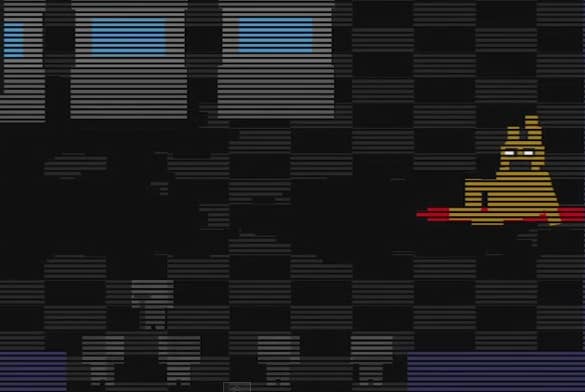
FNAF 1 through 3 focuses more on the children's deaths, whereas FNAF 4 through 6 focuses more on the man who killed them. Not to say there isn't overlap between the themes; FNAF 6 gives us a brief profile about the girl haunting the Marionette animatronic, and how her soul came to rest in it.
I don't know what the next game (or games) will be about, but I'm confident in saying just because it seems like we've hit an ending, you can be darned sure Freddy Fazbear will be back to bite your face off sooner than later. There's a movie coming, as well as more books. Even though Scott's doesn't seem to be developing FNAF games for the money (FNAF 6 being free is a good indication of such), I doubt he wants the property to lie fallow and let bad imitators and bootlegs overtake it like weeds.
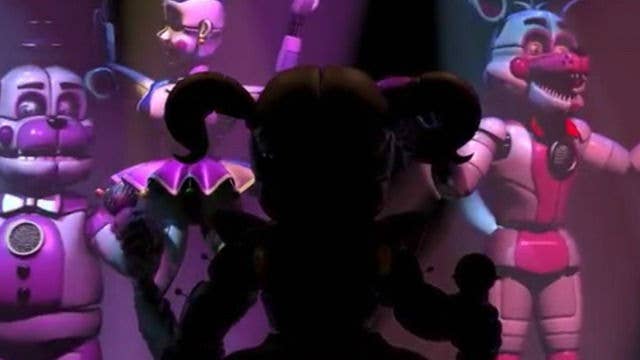
Now to mop up a "But—!" or two:
- "The ending screen says 'The End' and has a picture of the kids' graves!" — Indeed it does. So does the ending screen for FNAF 3, which also shows us the animatronics have gone dark. If you get the game's bad ending and fail to put the kids' souls to rest, the animatronics' eyes remain lit, indicating the souls are still present. The darkened eyes in the good ending (and the melancholy music) suggest the kids' souls have moved on.
- "Scott Cawthon says 'Thank you' at the end of the credits scroll!" — Again, when Scott finished FNAF 3, he posted a large 'Thank you!' image on his site, which also suggested he was done with FNAF. Then the animatronics in that picture began to decay one by one…
Like the animatronics haunting it halls, Five Nights at Freddy's is not a series that will die easily. I can't say I'm too upset about that, though. Having outed myself as a filthy fan several times over (and probably one of the few who are over the age of, like, 15), I no longer try to justify why I've enjoyed following the series from day one. I like following its story, and seeing Scott's modelling skills improve from game to game.
I also like trying to pick out references to retro games. The FNAF series is lousy with them, and I feel smugly satisfied that few members of the punk kid fanbase will pick up the games' call-outs to Final Fantasy IV and other old-timey titles.
